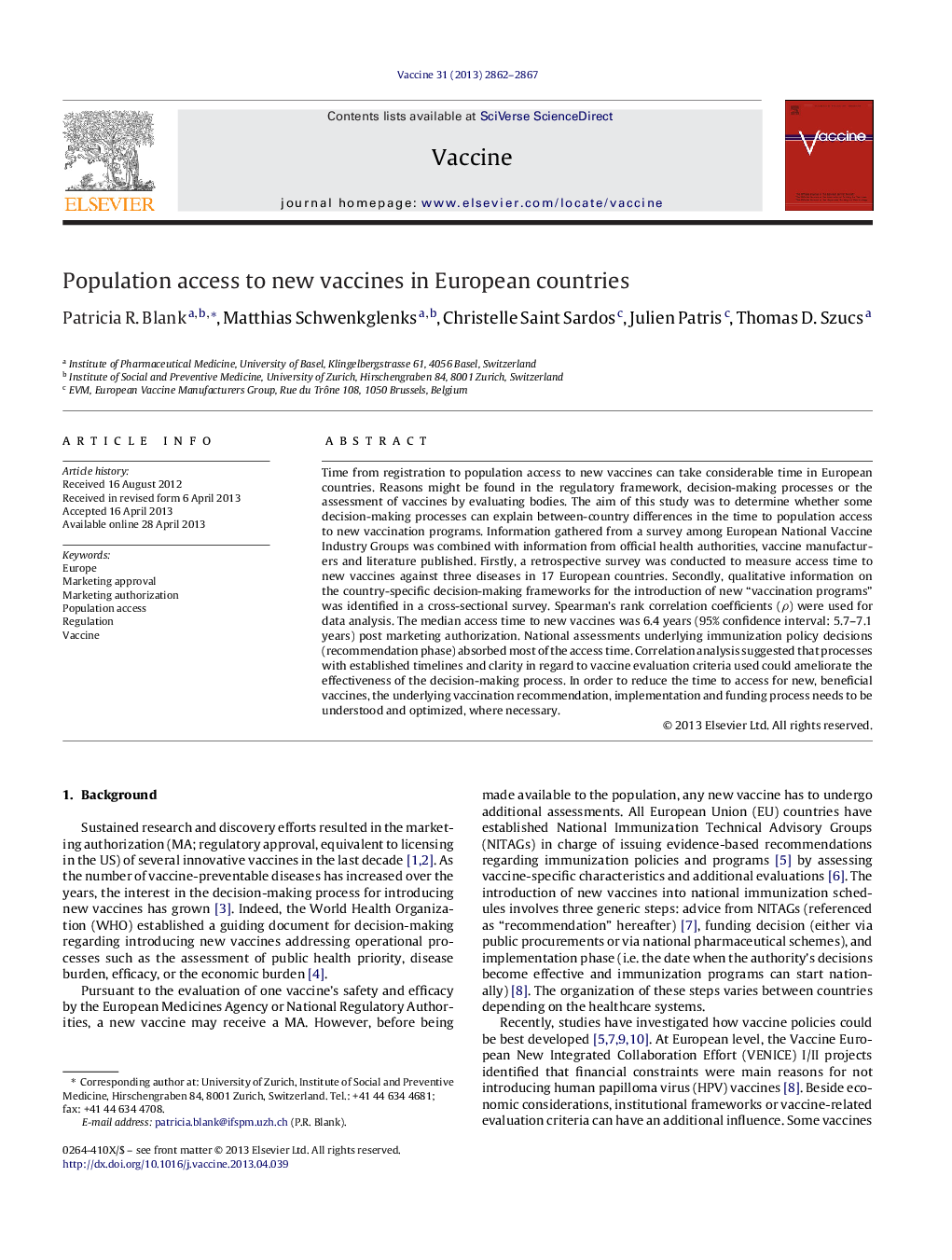| Article ID | Journal | Published Year | Pages | File Type |
|---|---|---|---|---|
| 2402348 | Vaccine | 2013 | 6 Pages |
•Access time to new vaccines against three different viruses were quantified.•Decision-making frameworks for introducing new vaccination programs were examined.•Timelines and clarity on criteria used are important for effective decision-making.•This is an attempt to explore variances in population access to new vaccinations.
Time from registration to population access to new vaccines can take considerable time in European countries. Reasons might be found in the regulatory framework, decision-making processes or the assessment of vaccines by evaluating bodies. The aim of this study was to determine whether some decision-making processes can explain between-country differences in the time to population access to new vaccination programs. Information gathered from a survey among European National Vaccine Industry Groups was combined with information from official health authorities, vaccine manufacturers and literature published. Firstly, a retrospective survey was conducted to measure access time to new vaccines against three diseases in 17 European countries. Secondly, qualitative information on the country-specific decision-making frameworks for the introduction of new “vaccination programs” was identified in a cross-sectional survey. Spearman's rank correlation coefficients (ρ) were used for data analysis. The median access time to new vaccines was 6.4 years (95% confidence interval: 5.7–7.1 years) post marketing authorization. National assessments underlying immunization policy decisions (recommendation phase) absorbed most of the access time. Correlation analysis suggested that processes with established timelines and clarity in regard to vaccine evaluation criteria used could ameliorate the effectiveness of the decision-making process. In order to reduce the time to access for new, beneficial vaccines, the underlying vaccination recommendation, implementation and funding process needs to be understood and optimized, where necessary.
